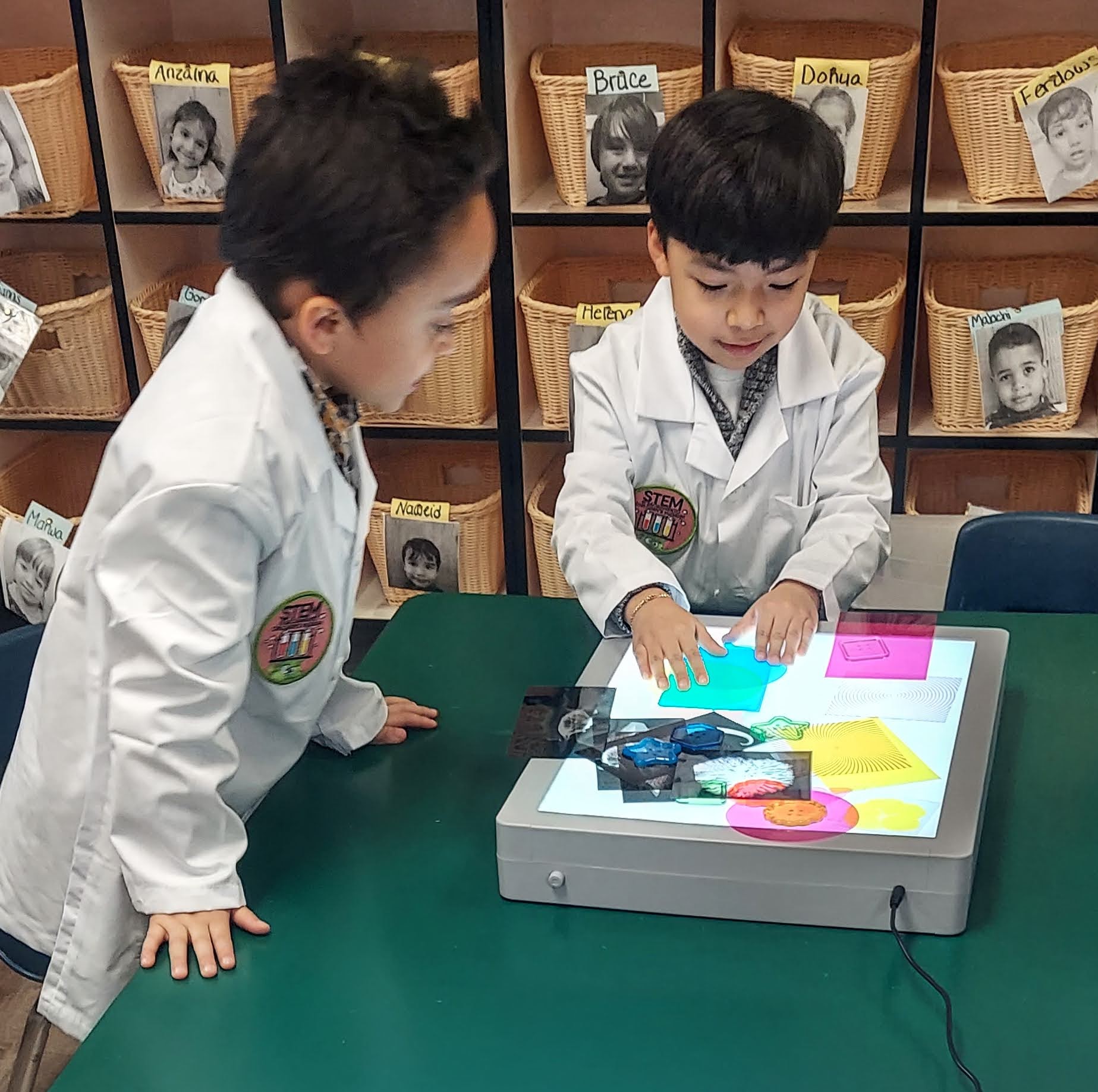“Play is often talked about as if it were a relief from serious learning. But for children, play is serious learning. Play is really the work of childhood.”
– Fred Rogers
Imagination play is one of the most foundational types of play. Research on pretend play links it to increased literacy, problem solving and empathy. Children of all ages engage in imagination play on a daily basis. Pretend play allows for children to express themselves, try out new things, activate creative thinking and practice conflict resolution. It is during these playful learning experiences children begin to practice agency and independence, building confidence.

Under 2s
During play with babies, caregivers are fostering verbal and nonverbal communication skills along with building vocabulary. It’s as easy as peek-a-boo and playing with simple toys. Infants will start to mimic and pretend to do what adults and others in their lives do, even if they don’t have the same tools. Include babies by narrating daily activities, this supports expanding their vocabulary. When you are cooking dinner tell them step by step what you are doing, how you are doing it, and why.
Toddlers
During the toddler stage children really start expanding their horizons. They often develop a love for dress up during this age. Indulge their imaginations by playing along or helping them set the scene for their play. If they dress up as a pirate, go on a treasure hunt with them. If they want to imagine they are a firefighter, help them find something to use as a water hose or pretend you need to be rescued.


Preschoolers
Research suggests that children with strong pretend play skills are better prepared for reading. When children understand that objects can represent something, such as pretending a block is a tasty donut ready to eat, they can more readily understand letters and groups of letters can represent a concept. Imaginary play increases vocabulary and storytelling skills, all needed for strong readers!
School-Age
Pretend play in school-aged children continues to encourage independence and builds confidence. Role playing can support understanding one’s own emotions and strengthen self-regulation while also promoting empathy. During imagination play at this age children can experiment with being in control, setting their own rules, all with less social risk because they can act outside of themselves.

Ideas to implement at home:
- Have a dress up bin. Favorite characters are always popular but don’t forget career dress up too! Check out local thrift stores to build your costume bin.
- Use cardboard boxes, the bigger the better! Kids will instantly have a rocketship, boat, or cave to play in.
- Get out the kitchen gadgets (or stop by your local dollar store). Mud kitchens or bathtub potions are always a hit.
- Hang out outside. Local parks are often themed to spur adventure or go a hike and pretend you are famous explorers.
- Indulge their imaginations and play along! Ask lots of questions and extend by adding more details or creating a problem to solve.
- Let them be in charge, take over, be the boss, give the directions.
Next time you visit the museum, check out our dress up area, grocery story, and Camp Rancho to pretend, play, and grow! We also have a variety of dress up and pretend play items available in our store.



